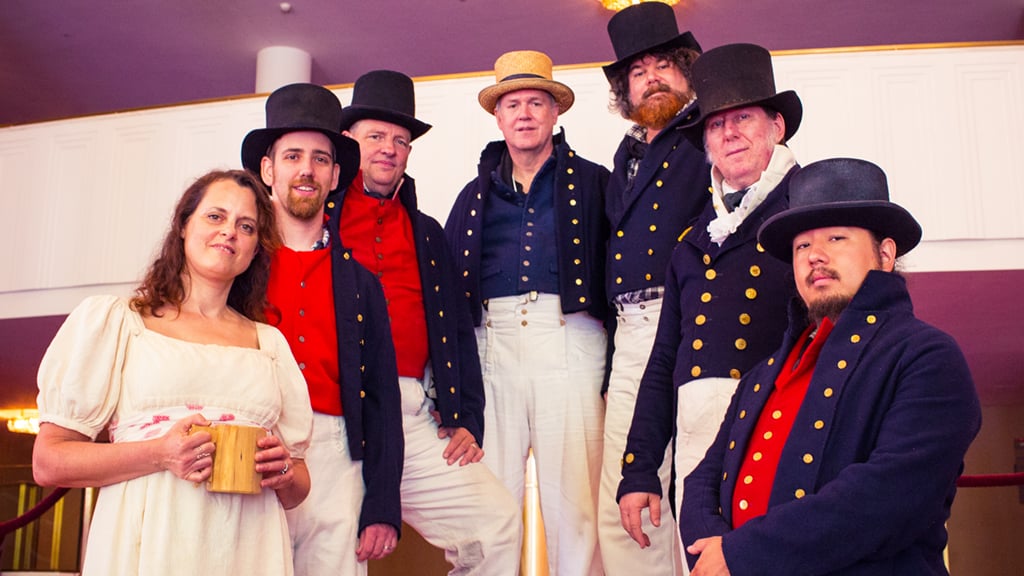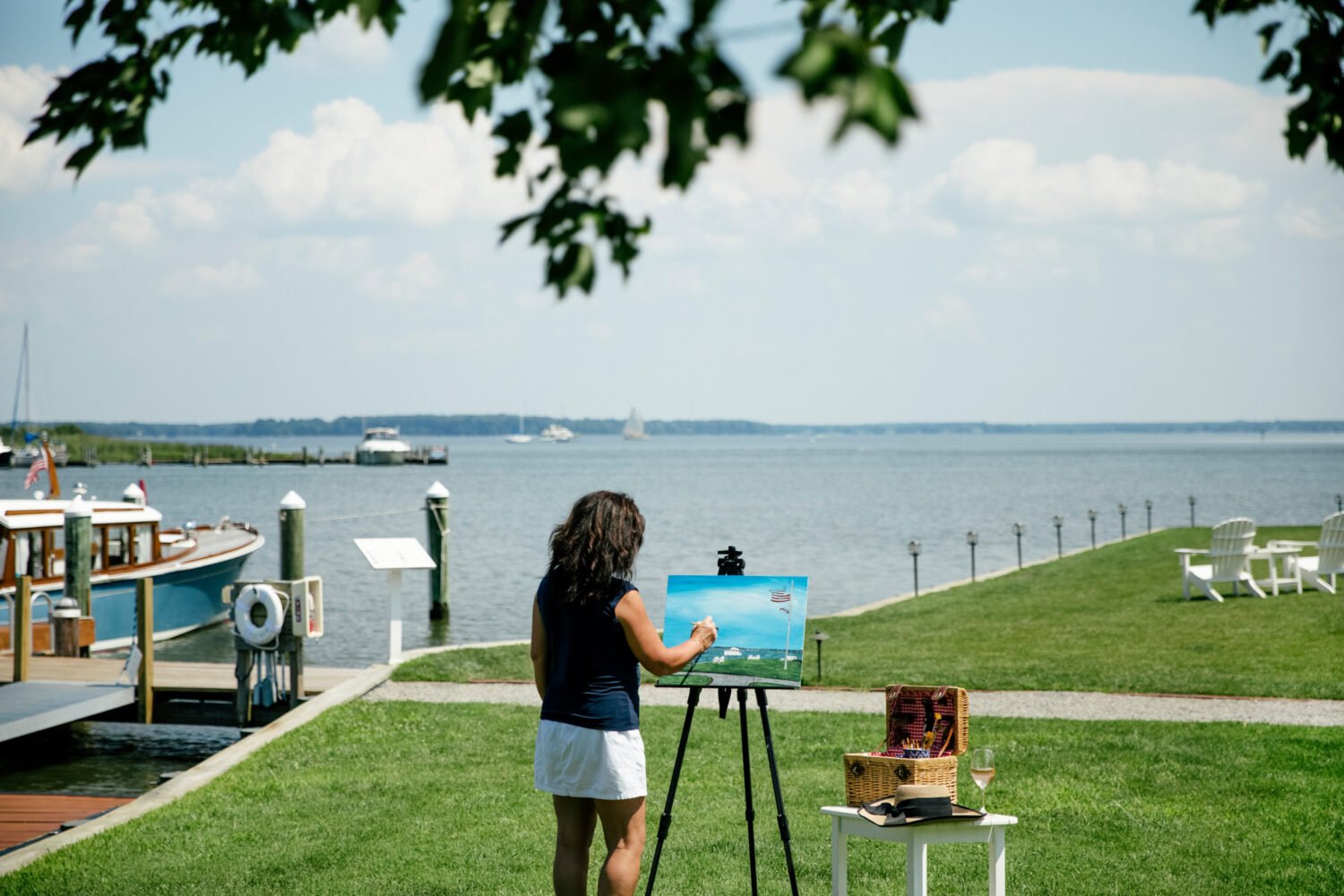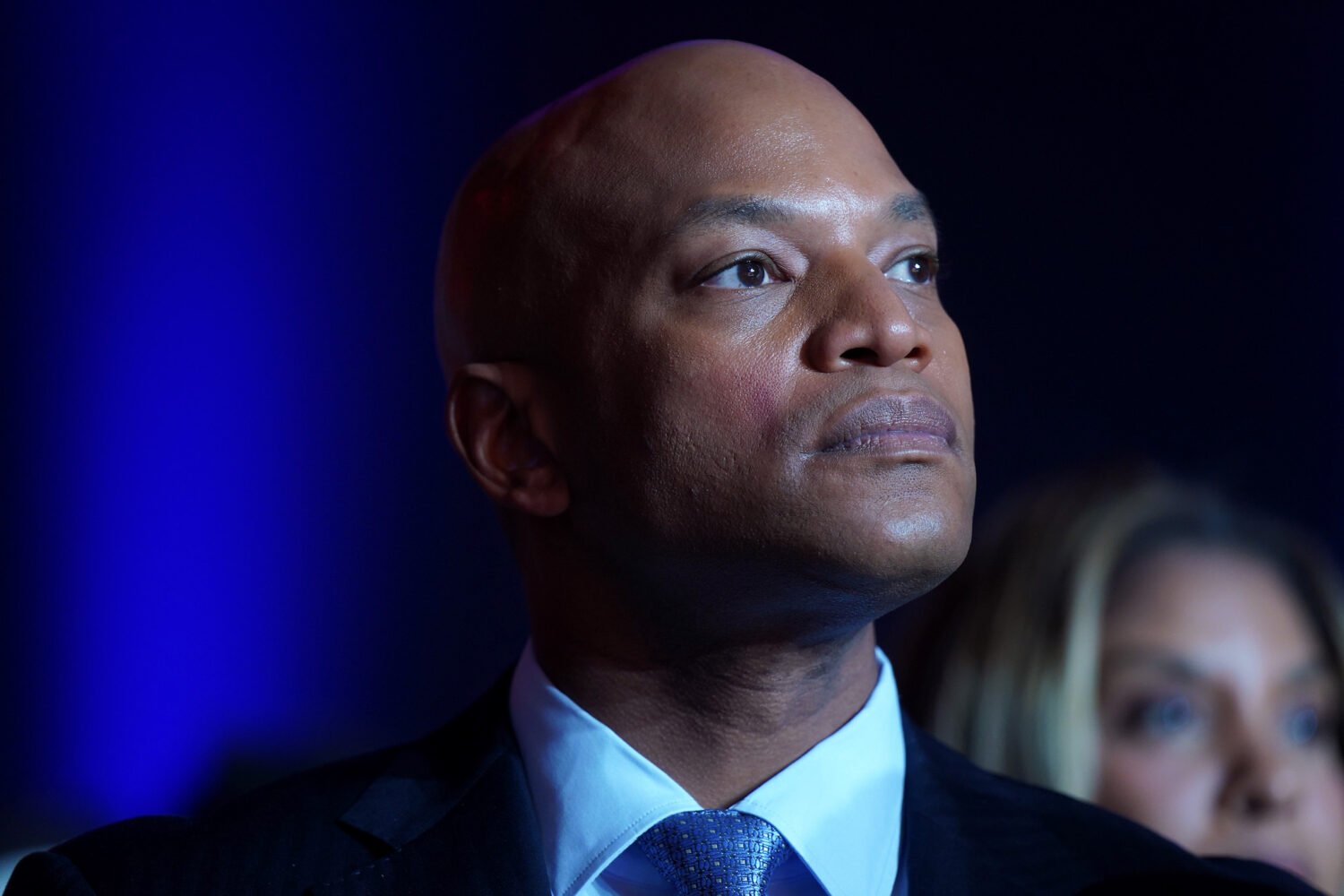Three days after the blizzard of 2016 shuttered Washington, a dozen people filter into a dimly lit, wood-paneled basement room at a sports bar near the White House that resembles nothing so much as the belly of an old seafaring craft—appropriately, given that the group, the Ship’s Company Chanteymen, will spend the next two hours singing sea chanteys.
Of the four bars that host the Chanteymen’s “open sings” (the Limerick Pub in Wheaton, Galway Bay in Annapolis, and the Wharf Rat in Baltimore are the others), the Laughing Man Tavern, on G Street, has the best acoustics—according to one singer, “the best in the world.” None of the other spots, it’s worth noting, has a private room, leaving the singers to contend with blaring TVs and rowdy drinkers.
At the stroke of 8 p.m., Michael J. DeCarlo, 60, a policy director with the Blue Cross Blue Shield Association who wears an American flag pin on the lapel of his gray suit, stands. The other singers—a mix of lawyers, physicists, bureaucrats, and retirees, nearly all men—await his cue.
Chanteys were the Sail Age’s chief form of self-expression. Mariners sang about love lost, family, and solid ground. Rhythm helped sailors work in unison; disorder risked lives, or the ship itself. Today, DeCarlo says, the open sings are an antidote to the isolation of modern life: “You commute, push paper around, get back in your car, watch television, go to bed, wake up the next day, and do it all again. You can fall into melancholy.”
The Chanteymen, founded in 1996, are an arm of the Ship’s Company, a troupe of maritime-history reenactors who perform at local festivals and other events. But they welcome all to their weekly sings. “They are a slice of America,” says founding member Myron Peterson. “There are those who like to sing even if they’d never be selected for chorus, and that’s okay. These are not performances.”
There are rules. Each singer chooses a chantey for the group. If unprepared to suggest one, he or she picks from the “hymnal,” a collection of hundreds of songs the Chanteymen have compiled. Everyone has to sing. “That’s nonnegotiable,” says Peterson.
Wayne Thompson, a 69-year-old retired graphic designer, has his own collection of about 250 chanteys—deep cuts he’s found in out-of-print histories and by attending many open sings. When he finds one he likes, he copies the lyrics onto ruled paper, varying the ink color to differentiate verses from refrain, and adds it to his binder.
“When these songs were created,” Thompson says, “someone would play a banjo, and a chanteyman—a sailor hired for his musical ability—would sing some of the most beautiful songs you’ll ever hear.”
Thompson brings the gathering to order by hitting a small brass bell, just as a latecomer darts in. “Hello, Harley!” someone calls out. “I knew we left the door open too long!” DeCarlo rocks back and begins a tune about a sailor who crossed the Atlantic through sleet and snow to arrive in New York City, downtrodden and homesick.
As the assembled finish, the next singer rises to begin another round. “As miserable as your situation might be,” Thompson says, “ you’re happier when you’re singing.”
This article appears in our June 2016 issue of Washingtonian.

















